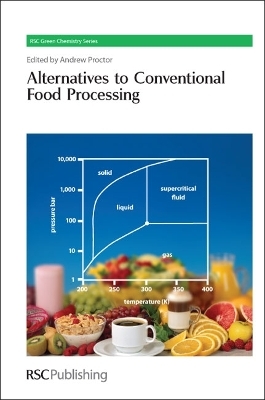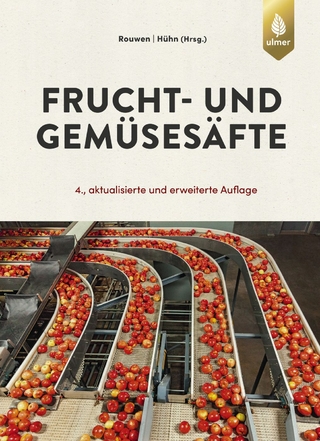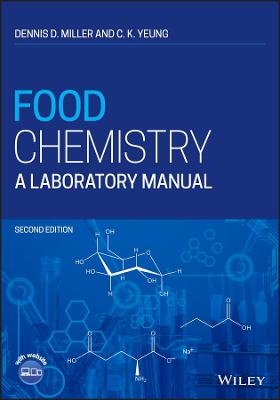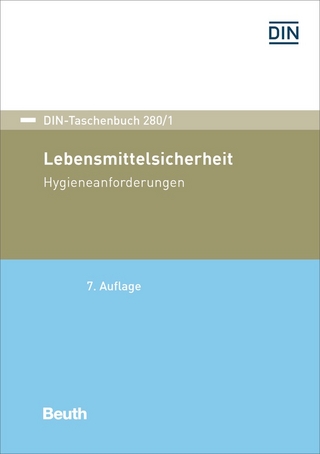
Alternatives to Conventional Food Processing
Seiten
2010
Royal Society of Chemistry (Verlag)
978-1-84973-037-2 (ISBN)
Royal Society of Chemistry (Verlag)
978-1-84973-037-2 (ISBN)
This cross disciplinary book relates green principles to the food industry, covering legal and policy issues, engineering, food processing and food science.
This multi-authored book is edited by an expert in the field and includes chapters from international contributors. It is fully cross disciplinary relating green principles to the food industry, covering legal and policy issues, engineering, food processing and food science. It addresses the alternatives to conventional food processing that have reduced energy requirements or solvent use and how they affect final food quality. Initially, the principles of green chemistry and technologies are outlined to provide a justification and basis for the processing methods that are addressed. This is followed by a discussion of legal and policy issues in both the EU and the US which provide further justification for the need for such technologies and the constraints and benefits of current policies and regulations. The major green technologies available to the food industry are discussed, outlining the main principles and applications of each. The degree to which they are already in commercial use and developments needed to extend their use further are also covered.
This multi-authored book is edited by an expert in the field and includes chapters from international contributors. It is fully cross disciplinary relating green principles to the food industry, covering legal and policy issues, engineering, food processing and food science. It addresses the alternatives to conventional food processing that have reduced energy requirements or solvent use and how they affect final food quality. Initially, the principles of green chemistry and technologies are outlined to provide a justification and basis for the processing methods that are addressed. This is followed by a discussion of legal and policy issues in both the EU and the US which provide further justification for the need for such technologies and the constraints and benefits of current policies and regulations. The major green technologies available to the food industry are discussed, outlining the main principles and applications of each. The degree to which they are already in commercial use and developments needed to extend their use further are also covered.
Professor Andrew Proctor is at the University of Arkansas, USA.
Introduction to Green Principles, Comparison of EU and US Law on Sustainable Food Processing, Advances in Critical Fluid Processing, Supercritical Fluid Pasteurization and Food Safety, Membrane Separations in Food Processing, Processing of Foods with High Hydrostatic Pressure, Ohmic Heating of Foods, Aqueous Enzymatic Oil Extraction, High Intensity Pulsed Light Food Processing, Ultrasonic Food Processing, Microwave Food Processing
| Erscheint lt. Verlag | 16.12.2010 |
|---|---|
| Reihe/Serie | Green Chemistry Series ; Volume 10 |
| Verlagsort | Cambridge |
| Sprache | englisch |
| Maße | 156 x 234 mm |
| Gewicht | 2525 g |
| Themenwelt | Technik ► Lebensmitteltechnologie |
| ISBN-10 | 1-84973-037-7 / 1849730377 |
| ISBN-13 | 978-1-84973-037-2 / 9781849730372 |
| Zustand | Neuware |
| Informationen gemäß Produktsicherheitsverordnung (GPSR) | |
| Haben Sie eine Frage zum Produkt? |
Mehr entdecken
aus dem Bereich
aus dem Bereich
Technologie, Chemie, Mikrobiologie, Analytik, Bedeutung, Recht
Buch | Hardcover (2023)
Verlag Eugen Ulmer
140,00 €


